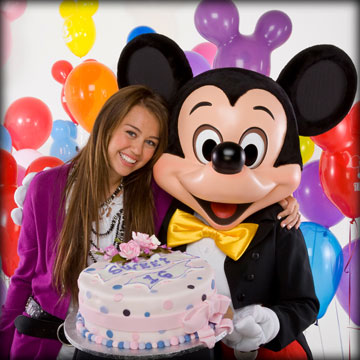The truth about: birthday celebrations
By Lionel Wijesiri
“Have you ever thought about why any adult would bother to celebrate
birthdays?”, a colleague asked me the other day while going through a
birthday invitation he has received. He had been invited to a party
celebrating one of his friend’s 60th birthday.
Before I could offer an answer, he said, “When you really think about
it, birthday parties are just opportunities for your friends and family
to come together and congratulate you for surviving another year”.
|

Birthday parties are mostly enjoyed by the young |
I disagree with my colleague’s opinion. Perhaps, he was not aware
that birthday customs and celebrations have a long history far beyond
anyone’s imagination. Although research on the exact origin of birthday
celebrations remains inconclusive, there is enough of a consensus to
piece together an approximate history.
Linda Rannells Lewis, the renowned author, in her book Birthdays:
Their delights, disappointments says, “Birthdays have been celebrated
for thousands of years. In early civilisations, where the development of
a calendar made an organised reckoning of birth dates possible, the
horoscopes of ruling monarchs, their successors and rivals had to be
cast with care and birthday omens meticulously examined, for the
prospects of the mighty would affect the prospects of the entire
society.
“By the time of Ptolemy V, this practice was well established”.
(Ptolemy V was an Egyptian king who reigned from 204-181 BC.)
Communal use
Lewis says in her book that even at this early stage, birthdays were
not strictly reserved for the great rulers. Society also adapted for its
communal use practices of the elite which it admired.
In the fifth century Before Christ, the Greek historian Herodotus,
describing the festivals of the Persians, wrote: “It is their custom to
honour their birthday above all other days, and on this day, they
furnish their table in a more plentiful manner than at other times. The
rich then produce an ox, a horse, a camel and an ass, roasted whole in
an oven; but the poor produce smaller cattle”.
Lewis said, “In Egyptian households of the same period, birthdays
were celebrated similarly. A part of the family budget was set aside to
buy birthday garlands and animals for sacrifice, just as we might plan
to spend a certain sum for balloons, party hats, and an ice-cream cake”.
The emperors of Rome often went to extremes in their own birthday
celebrations. When the first birthday of Drusilla, the daughter of
Caligula, approached, the emperor arranged a party suitable for the
infant daughter of a “god” (himself). To celebrate her birthday, two
days of horse racing were held, and a ritual slaughter of 300 bears, and
500 various beasts from Libya, in the amphitheatre of Taurus, was held.
Special day
It is obvious, therefore, that for thousands of years, people all
over the world have thought of one’s birthday as a very special day.
People believed that on a birthday, a person could be helped by good
spirits, or hurt by evil spirits. So, when a person had a birthday,
friends and relatives gathered to protect him or her. And that’s how
birthday parties began.
Though the exact origins and significances of the candle-blowing
ritual and candles themselves are unknown, there are multiple theories
as to the history of placing candles on cakes.
|

A teenager having fun at her 16th birthday |
It is commonly thought that the tradition of placing candles on
birthday cakes could be attributed to early Greeks. In Ancient Greece,
Artemis was the goddess of the hunt, as well as the moon. (Her twin
brother, Apollo, was god of the sun). It is said that cakes brought to
the temple of Artemis were adorned with candles to make them glow like
the moon.
The Greeks believed that everyone had a protective spirit or demon
who attended his birth and watched over him in life. This spirit had a
mystic relation with the god on whose birthday the individual was born.
The Romans also subscribed to this idea. This notion was carried down in
human belief and is reflected in the guardian angel, the fairy godmother
and the patron saint.
Birthday candles, in folk belief, are endowed with special magic for
granting wishes. Lighted tapers and sacrificial fires have had a special
mystic significance ever since man first set up altars to his gods. The
birthday candles are, thus, an honour and tribute to the birthday child
and hopes for good fortune.
Cake
The birthday cake has been an integral part of the birthday
celebrations. Certain rituals and traditions, such as singing of
birthday songs associated with birthday cakes are common to most
cultures. The development of the birthday cake has followed the
development of culinary and confectionery advancement.
While throughout most of Western history, these elaborate cakes in
general were the privilege of the wealthy, birthday cakes are nowadays
common to most birthday celebrations.
Why do people say, “Happy birthday” to each other? We believe that
the good wishes of our friends and relatives are supposed to protect us
from evil spirits. Party snappers, horns, bursting balloons,
firecrackers and other noisemakers are just one more way of trying to
scare off any evil spirits that may be hovering about.
In other words, we follow many of the old birthday beliefs. We pay
attention to the meanings of old-time birth symbols. We do these things
mainly for fun. However, it is also possible that there is something
deep inside us that wants to believe.
These customs and traditions connected with the observance of
birthdays have to do with guessing the future, good wishes for the
future, good luck charms against evil spirits and the like. All birthday
rituals, games and ceremonies are a form of well-wishing towards the
birthday child, which are supposed to work their magic in the year
ahead.
Birthday song
Finally, a few words about the most important event of any birthday
party - the birthday song sung while the cake is cut. This song Happy
Birthday to You is traditionally sung at every birthday party. According
to the Guinness Book of World Records, Happy Birthday to You is the most
recognised song in the English language, and its lyrics have been
translated into at least 18 languages.
This song had its origins in 1893, when Mildred Hill, a kindergarten
teacher in USA, put together a simple little tune. Whether she composed
it entirely out of her head, or was influenced by other folk song
fragments, is not clear. However, when her younger sister Patty (also a
teacher) added words, the groundwork was laid for a very pleasing song.
They called it Good Morning to All:
Good morning to you, Good morning to you.
Good morning, dear children, Good morning to all.
Good Morning to All was initially used as a welcoming song to be sung
by the teacher to the class each morning. However, when it was published
later in 1893, in a book of songs for kindergartens, it proved to be
popular in reverse - children sang it to their teachers, rather than the
other way round, and the word “children” was popularly replaced by
“teacher”. So the song gently morphed into Good Morning to You.
In this form, young children across the United States began to sing
the song. The slow development from ‘Good Morning’ to ‘Happy Birthday’
seems to have come from children themselves, with encouragement from
Patty Hill, who helped create the new lyrics when children liked the
song enough to want to sing it at parties. |

